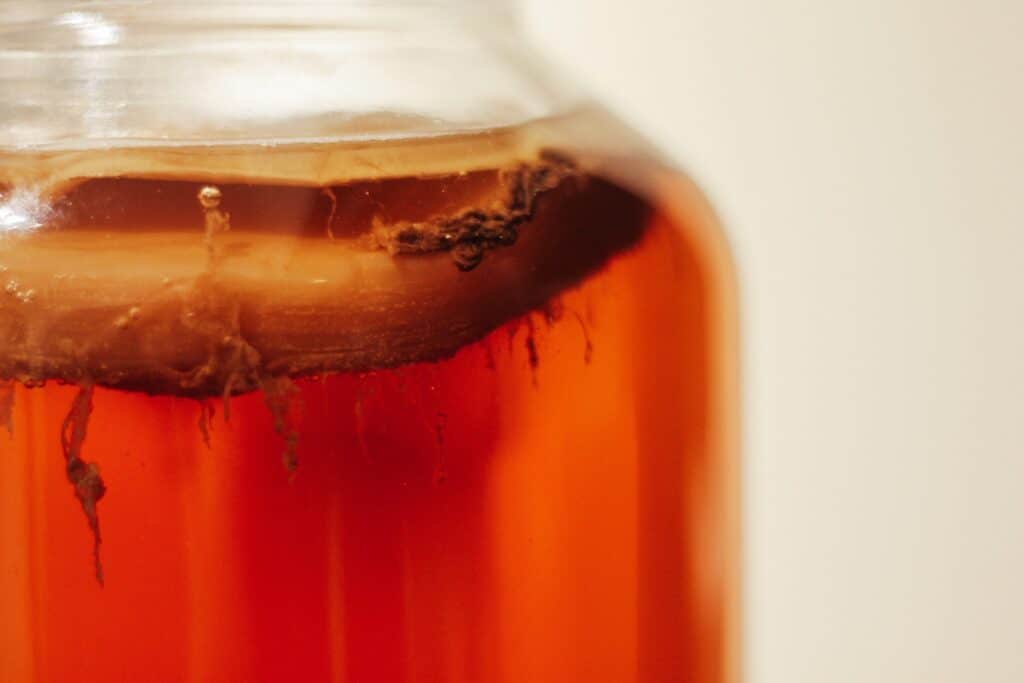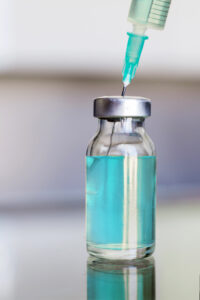Probiotics may help reduce bloating and gas, especially when you have stomach problems. But, did you know probiotics can cause bloating as a side effect?
If you’re new to taking probiotics, especially some of the more common supplements found in the stores, you may experience some bloating and constipation right at first. The probiotics can make you bloated simply because you aren’t used to the healthy effects!
Some of those healthy effects include better digestion, better nutrient absorption, better utilization of healthy fibers, and generally an overall healthy diet.
So, what happened? Why is this happening to us? Before the advent of processed food, many people preserved the food harvest by fermentation. Probiotic bacteria cause fermentation (think sauerkraut). This introduced lots of probiotics every day with every meal.
Today, fermented foods get snubbed, and people have to purchase supplements or specially fermented foods to get their probiotics.
When we go back to getting healthy probiotics, not only is a huge adjustment for our way of thinking, it’s a huge adjustment for our digestive system and it takes a little time to get used to it. For most people, the bloating and gas only lasts a couple of days to two weeks. Then, it should go away.
If you take the right supplement and combine it with a proper diet, you won’t experience any issues at all. In fact, more commonly, choosing the right probiotic can help reduce all incidents of bloating, gas, and constipation completely. We recommend talking to one of our counselors about how we use probiotics in our weight loss system to reduce irritable bowel, indigestion, and cramping.
What are probiotics? What do probiotics do?
Probiotics are bacteria found in our natural environment, fermented foods, and supplements that we ingest to aid our digestion of food. Once the probiotics get into our gut, they multiply and help us break down tough fibers, unbind nutrients, and fight off unwelcome bacteria that could make us sick. More probiotic bacteria are working in your gut than there are people on the planet.
“Probiotics provide an extra layer of strength. (They behave like) soldiers in your intestinal tract to combat pathogens.” ~Dr. Mary Ellen Sanders – Internationally recognized expert in the field of probiotic microbiology
The most common probiotics are lactobacilli and bifidobacteria. Thousands of different kinds of probiotic bacteria exist, including Escherichia coli (E. coli), Bacillus, Streptococcus, Enterococcus, and Saccharomyces. In the right place, all these probiotics have their uses.
Even the dreaded E coli bacteria are beneficial in our large intestine. They help us absorb iron and eliminate wastes. Many people complain about the Candida yeast; however, it’s beneficial on our skin and genitalia to help prevent other bacteria, like E coli from getting into places they shouldn’t. (Safety note: don’t eat anything with E coli – ever!)
Can Probiotics Help Bloating?
A poor diet encourages less desirable probiotic bacteria to flourish while repressing healthier types. Many times, the candida yeast grows out of control when fed a diet of sugary, processed foods. Replenishing healthy probiotic bacteria can help push back the overgrowth of the Candida.
Adding the right probiotics helps with proper digestion. Many vitamins and minerals are bound in the fibers of food, and the probiotic bacteria break down the fibers to release the nutrients. If they don’t, the fibers pass into the large intestine, where bacteria, like E coli, break them down and release methane and hydrogen sulfide as by-products.
Think about the last time you ate beans. They are full of fibers, and some of you get really gassy. With the right probiotics, you won’t get so gassy.
Additionally, probiotic bacteria can also help break down sugars, proteins, and fibers that cause intolerances and allergies. Some studies show that probiotic supplementation can even help reduce the effect of the gluten protein in people who have celiac disease.
Why Do Probiotics Make Me Bloated?
Most of the time, it’s because you’re taking too much or your diet isn’t good enough to support the probiotics.
In the case of probiotics, you want to start slowly and work your way up. Introducing a lot of bacteria to your digestive system can cause your immune system to react like you caught the flu or the sudden influx of new bacteria cause unrest with the native bacteria. This reaction can cause bloating, diarrhea, and cramping.
On the other hand, people who haven’t taken probiotics tend to have an unhealthy diet. This is especially true if you are overweight. When you introduce probiotics, it generally comes with a healthier diet – one filled with natural fibers. The increase of fibers can cause bloating until you rebalance the bacteria in your gut and get used to a better, healthier diet.
When you cut back unhealthy, processed foods, you starve less friendly probiotics, like the Candida yeast. As they die off from starvation (usually within 12-48 hours), their decomposition produces gas. This is quite typical for new probiotic users.
You want to be very careful about taking new probiotics and the die-off of less than desirable bacteria. If too many bacteria die off quickly, it could cause your immune to act like you’ve been poisoned. This is why it’s essential to work with a trained professional to introduce supplementation the right way.
We recommend scheduling a free consultation with one of our counselors to learn about which supplements will work right for you, especially on how to take probiotics the right way, so you don’t experience gas or bloating at all.
The Last Gas…
“The majority of diseases start in the digestive tract when ‘good’ bacteria are no more able to control ‘bad’ bacteria.” ~Elie Metchnikoff – Father of Probiotics
Probiotics can cause gas, especially if you’re introducing them after eating an unhealthy, processed food diet. But, in the long run, the probiotics will help with the gas formation and allow you to reduce bloating and other digestive problems. They really are beneficial to our health and well-being.







